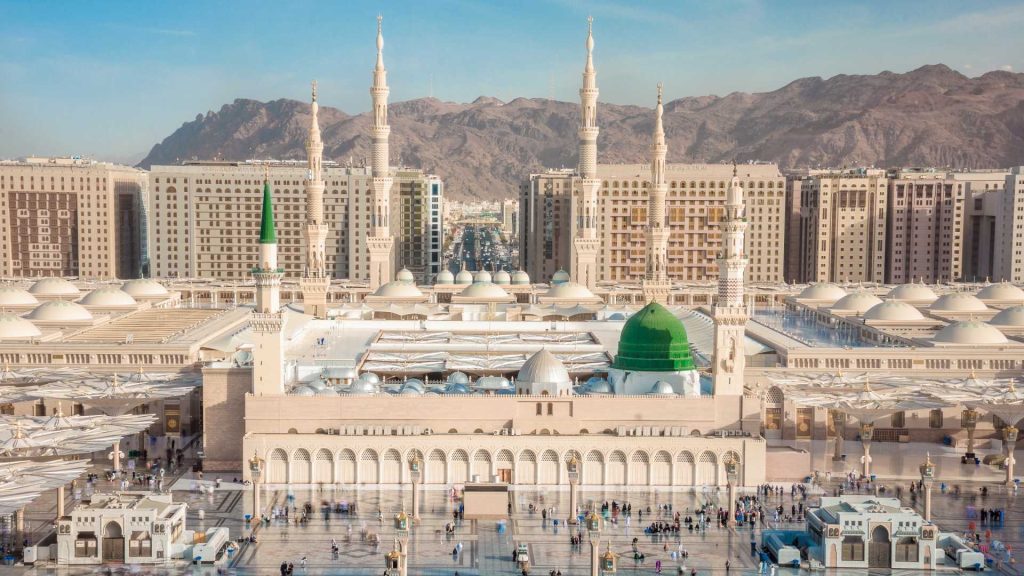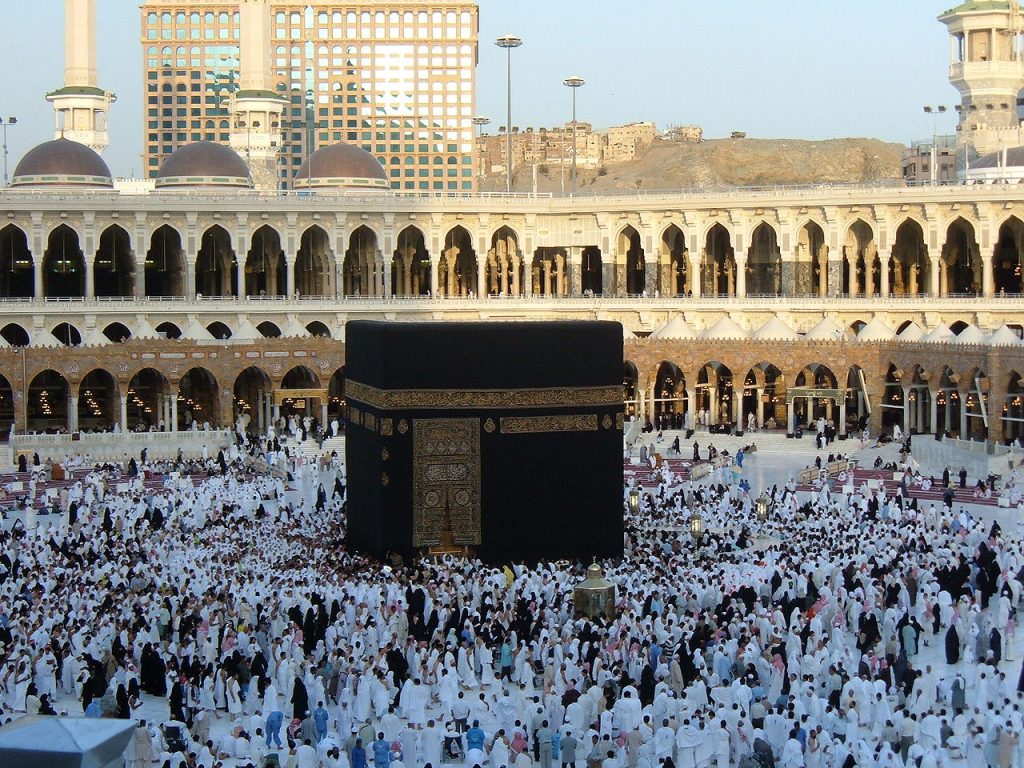Jihad, one of the important concepts of Islam, is surrounded by a lot of stereotypes outside the Muslim world. We checked how religious scholars understand and interpret this concept.
There is an opinion that in Islam there is a great jihad - the struggle of a believer with his passions, and a small jihad, the goal of which is war with the infidels (ghazawat). At the same time, it is often asserted that the great jihad in its importance superior small. You can also find information that until the early 1980s, small jihad was not announced for several centuries now. At the same time, modern radical Islamist groups are actively use jihadist rhetoric.
The word “jihad” itself translated from Arabic as “zeal, diligence” and means any effort by a person to organize his life or the lives of others according to the will of God. Jihad can be aimed at missionary work, establishing prosperity in the Muslim community, or fighting evil thoughts and aspirations - both one's own and the collective. Such efforts do not always involve taking up arms or spreading God's ordinances by force.
Before proceeding to the analysis of Qur'anic contexts, an important note must be made. Koran wasn't was sent down to the Prophet Muhammad at once: he received divine revelations for more than 20 years. During this time, Islam transformed from the views of a small persecuted community into a religion that united all the Arabian tribes. Of course, the change in the position of the Muslim community required new regulations, which were followed in later revelations, which were also included in the Koran. Therefore, to understand many passages from the Muslim holy book, it is necessary to take into account circumstances their revelations - they are the ones who often clarify the context in which this or that attitude arose.
This is what commentators on the Koran do: they take into account not only the grammar and syntax of the verses (verses) of the holy book. We know chronology sur (chapters) of the Koran, which does not coincide with their numbering. The suras in the Koran that come after the first, “Opening”, are arranged according to decreasing volume, and not according to the date of revelation. Traditionally, the suras are tied to the time of Muhammad’s life and are divided into those that were revealed in Mecca (earlier) and those that occurred during the period of his life in Medina. At the same time, a number of provisions were clarified or changed as the Koran was revealed, as happened, for example, with ban on alcohol consumption.
Analysis of such changes and clarifications led to the formation of the doctrine naskha. According to this doctrine, if the provisions recorded in one verse contradict the provisions of another verse, then it is necessary to refer to the date of their revelation. In such a situation, a later verse cancels or clarifies the provisions of the earlier one. It is important to note that the change could lead not only to tightening, but also sometimes to easing. In addition, in a number of situations, the issue of “cancellation” of an earlier provision by a later one remains controversial to this day.

In the Koran, the term “jihad”, as well as words with the same root meet 41 times. Among these passages, many regulate the relations of Muslims with infidels, but not all of them call specifically for armed methods of resolving conflicts. These include, for example, the verse 25:52: “Do not obey the infidels, but fight them with great conflict with this” (author’s translation). Under "this" most commentators understand It is the Koran and in general that interpret this verse as a call not to retreat in confrontation with the infidels, to adhere to the principles of the Koran and to fight for the spread of Islam. When interpreting also taken into account the time of revelation of the verse: it appeared in the Meccan period of Muhammad’s life, when the Muslim community was still too small to repel the infidels with weapons in their hands.
After moving from Mecca to Medina, Muslims quickly gained strength and became an important political and military force on the Arabian Peninsula. The community under the leadership of Muhammad successfully fought the Arab polytheists and had the opportunity to impose its position on them. The change in the status of Muslims was also reflected in the Koran. It is to this period that the sending down verse about the sword (9:5, hereinafter - translated by I. Yu. Krachkovsky): “Beat the polytheists where you find them, capture them, besiege them, ambush them in every hidden place! If they turned and performed prayer and gave purification, then make way for them: after all, Allah is forgiving and merciful! In this case, we are talking about an armed struggle against infidels, the purpose of which is their conversion to Islam.
The status of this verse is still a matter of debate among Koranic scholars and Muslim jurists. Does he cancel the provisions of previously revealed verses on the same topic, in particular calling on Muslims to be patient in the face of polytheists like “Turn away from them and say: “Peace!” And then they will find out" (Koran 43:89)? These questions are special cases of a larger debate about the number of “abrogated” verses. Thus, the authoritative commentator al-Nahhas (died 949) thoughtthat the verse about the sword cancels the provisions of 113 earlier verses, while the famous Quranic expert al-Suyuti (died 1505) counted there are only 21 “canceled” verses, separately noting that the verse about the sword does not cancel the effect of the verses about patience.
Interpretation of individual verses about jihad changed over time. These include, for example, the verse 29:69: “And those who strove for us, we will lead them along our paths. Indeed, Allah is certainly with those who do good!” Early commentators of the 8th–9th centuries understood zeal in this case as the good deeds of the believer and the call for patience, but a number of commentators of the 10th–11th centuries began to interpret this passage differently. In their opinion, in this case what is meant is an armed struggle against the infidels. Despite the fact that majority Commentators still do not see any indication of violence in this context, this example demonstrates that there can be discussions about relatively “peace-loving” verses.

Author: Amr Zakarya (Wikimedia Commons)
A number of hadiths are devoted to the topic of jihad - messages about the Prophet Muhammad, on the basis of which it is established Sunnah, the second source of law in Islam after the Koran. Muslim jurists think, that the provisions set forth in the hadiths reveal, complement and clarify the principles of the Qur'an. In authoritative Sunni hadith collections we find both militant and peaceful contexts for describing jihad. In one of the hadiths they sayIthat if a person dies without having fought the infidel and without feeling the obligation to do so, then he dies hypocritically. In another hadith, Muhammad calls The best type of jihad is the one in which the husband sheds blood and his horse is wounded.
However, not all hadiths about jihad are filled with militant rhetoric. Participant in the fight against infidels say goodbye all sins. Jihad need to lead in word and deed, and by donating your property. In one of the sayings of Muhammad calls Jihad is the third most important good deed of a believer after performing obligatory prayers and caring for parents. On the other hand, caring for parents is valued higher than fighting infidels: thus, the prophet advises person to focus on this instead of taking part in jihad. Women, children, old people and the sick released from the obligation to fight for faith, since “their jihad is a pilgrimage to Mecca.”
Starting from the first centuries of Islam, a special type of literature dedicated to the rules and virtues of jihad has developed in the Muslim world. The authors of such works, based on the principles of the Koran and Sunnah, present a wide range of opinions regarding relations with infidels, whether in a peaceful or military context. An interesting detail in the evolution of public opinion regarding the legality of jihad notes researcher Asma Afsaruddin. She emphasizes that while in the early stages of Muslim history both “peace-loving” and “military” understandings of jihad can be found in such writings, over time jihad begins to be understood exclusively from a military point of view. Such a change in vector is usually explained by the fact that Muslim states became increasingly vulnerable in the fight against external and internal enemies, which is why they required the voluntary help of fighters for the faith.
It is likely that, as an alternative to an exclusively military interpretation of the struggle for faith, the concept of two jihads emerged and strengthened around the middle of the 8th century. She rests to the hadith in which the prophet addresses Muslims returning from a military campaign: “Today you have returned from the small jihad and are moving on to the big jihad.” Muhammad further explains that by great jihad he understands the believer’s struggle with his passions. Although this hadith is not found in authoritative collections, a number of famous theologians and jurists (by the way, conservative in their judgments) questioned its authenticity, it is found in collections of a moralistic nature.
The popularity of this concept is associated with the spread of ascetic-mystical worldview in the Muslim world and the development of Sufi teachings. The famous ascetic Abdallah ibn al-Mubarak (died in 797), who simultaneously combined ascetic and military virtues (for which he received the nickname "waging two wars"), in his book on jihad asserts: A true warrior is one who fights the manifestations of his low soul. Subsequently, the concept of a believer’s struggle with his passions is developed in Sufi literature, and with the expansion of the influence of Sufism, it penetrates into the set of general Muslim ethical guidelines. The key author who successfully managed to incorporate the moralizing principles of the Sufis into the number of commendable qualities of a believer is the famous theologian and lawyer Abu Hamid al-Ghazali (died 1111). In his fundamental work "Resurrection of Religious Sciences" He displays in the foreground is the struggle with one’s own passions, decorating one’s reasoning with militant rhetoric. It is interesting that al-Ghazali completed this work during the years of the first crusade, as a result of which Muslims conceded significant territories to the crusaders.

In general, it would be a mistake to say that any of the interpretations of jihad - military or peaceful - is considered the main one. Passages from the Koran and hadith do not give a clear answer to this question and provide a wide field for interpretation: since in Islam there is no institution of the church in its Christian understanding (we wrote more about this Here), any interpretation of the sacred text is supported only by the authority of the commentator. Moreover, these interpretations are not “in a vacuum” and often react to external events. Thus, the military understanding of jihad took hold at a time when the Muslim world needed a constant influx of recruits (for example, on the border with Byzantium).
The declaration of jihad continues to be used as a political tool. Under the slogan of fighting the infidels, anti-colonial protests arose in Algeria And Libya. At the beginning of World War I, the Ottoman Empire declared jihad in the hope that Muslim subjects of the Entente countries would rise up in rebellion against their current rulers (it is quite likely that one of the reasons Singapore uprising in 1915 there was Ottoman propaganda). In 2010, Libyan leader Muammar Gaddafi announced jihad "against Switzerland, Zionism and foreign aggression." Ideologists of modern fundamentalist and jihadist groups use radical interpretations of the Koran and hadith to justify their activities. At the same time, a number of modern Muslim thinkers (for example, the disgraced Turkish preacher Fethullah Gülen or Pakistani philosopher Fazlur Rahman Malik) understand jihad exclusively in moral and ethical terms.
However, in political discourse, jihad is used not only to justify military action, but also to mobilize for peaceful purposes. For example, leader Islamic revolution in Iran, Ayatollah Ruhollah Khomeini, after the victory of the revolutionary forces, announced restorative jihad, the purpose of which was to boost agriculture in the country (now in Iran there is ministry of agricultural jihad). First President of Tunisia Habib Bourguiba used the rhetoric of jihad as a mobilization factor in carrying out economic reforms. Even in the era of modernism, religious concepts and symbols have a powerful potential among Muslims that can motivate them to both constructive and destructive achievements.
Misconception
- A. Afsaruddin. Striving in the Path of God: Jihad and Martyrdom in Islamic Thought
- M. Bonner. Jihad in Islamic History: Doctrines and Practice
- BBC. Religions: Jihad
If you find a spelling or grammatical error, please let us know by highlighting the error text and clicking Ctrl+Enter.







